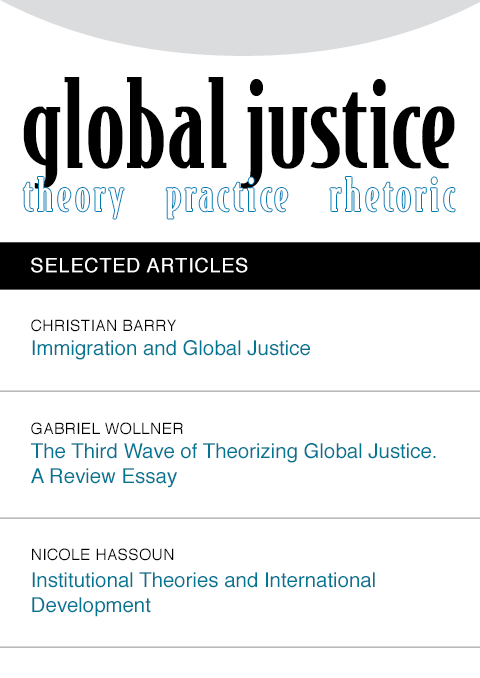Armstrong on Justice, Well-being and Natural Resources
DOI:
https://doi.org/10.21248/gjn.13.01.186Abstract
This paper argues first that Armstrong is led to see natural resources primarily as objects of consumption. But many natural resources are better seen as objects of enjoyment, where one person’s access to a resource need not prevent others from enjoying equal access, or as objects of production, where granting control of a resource to one person may produce collateral benefits to others. Second, Armstrong’s approach to resource distribution, which requires that everyone must have equal access to welfare, conceals an ambiguity as to whether this means equal opportunity for welfare, or simply equal welfare – the underlying issue being how far individuals (or countries) should be held responsible for the use they make of the resources they are allocated. Third, when Armstrong attacks arguments that appeal to ‘improvement’ as a basis for claims to natural resources, he treats them as making comparative desert claims: if country A makes a claim to the improved resources on its territory, it must show that their comparative value accurately reflects the productive deserts of its members compared to those of countries B. But in fact, A needs only to make the much weaker claim that its members have done more than others to enhance the value of its resources. Overall, Armstrong’s welfarist approach fails to appreciate the dynamic advantages of allocating resources to those best able to use them productively.
References
Aristotle (1962). The Politics, trans T. Sinclair. Harmondsworth: Penguin.
Armstrong, C. (2017). Justice and Natural Resources: An Egalitarian Theory. Oxford: Oxford University Press.
Arneson, R. (1990). ‘Liberalism, Distributive Subjectivism, and Equal Opportunity for Welfare’. Philosophy and Public Affairs, 19: 158-94.
Arneson, R. (1999). ‘Equality of Opportunity for Welfare Defended and Recanted’. Journal of Political Philosophy, 7: 488-9.
Chambers, C. (2009). ‘Each Outcome is Another Opportunity: Problems with the Moment of Equal Opportunity’. Politics, Philosophy and Economics, 8: 374-400.
Miller, D. (1999). Principles of Social Justice. Cambridge, MA: Harvard University Press.
Miller, D. (2012). ‘Territorial Rights: Concept and Justification’. Political Studies, 60: 252-68.

 Global Justice: Theory Practice Rhetoric (TPR) is a peer-reviewed, open-access e-journal which publishes original research in international political theory, with special emphasis on global justice. We are particularly interested in bridging the gap between political theory, empirical research, and the study of political practices and communication.
Global Justice: Theory Practice Rhetoric (TPR) is a peer-reviewed, open-access e-journal which publishes original research in international political theory, with special emphasis on global justice. We are particularly interested in bridging the gap between political theory, empirical research, and the study of political practices and communication. 


